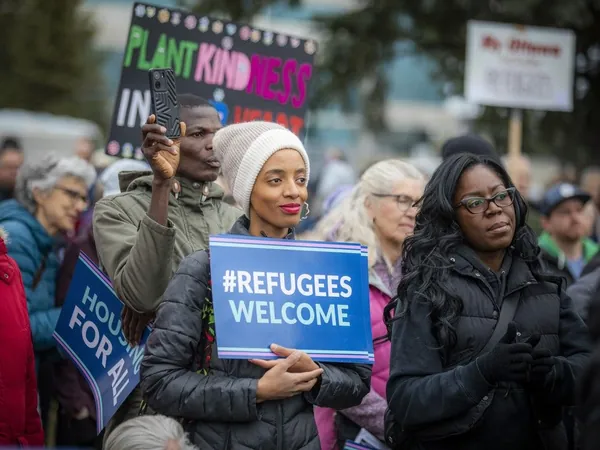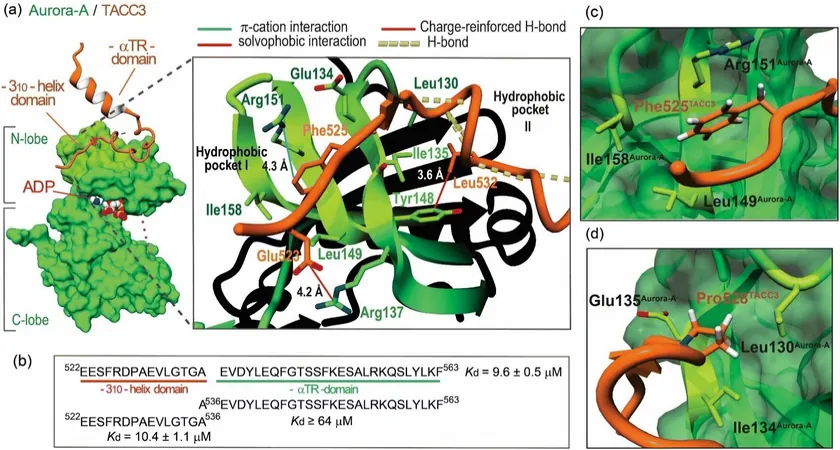
Ottawa Divided: Community Unites for Newcomer Reception Centres Amidst Protests
2024-11-18
Author: Jacques
Overview of Community Sentiment
In a spirited display of community sentiment, residents in Ottawa have found themselves at odds over the city’s proposal to establish two reception centres for refugees and asylum seekers. Scheduled for locations at 1645 Woodroffe Ave., on the Nepean Sportsplex property, and 40 Hearst Way, a portion of the Eagleson Park and Ride, the plan is drawing both advocates and detractors.
Rallies and Responses
On a recent Sunday, two separate rallies took place—one in staunch support of the centres and another in vehement opposition. Chelby Daigle, a Black Muslim woman who attended both rallies, highlighted the pressing need for dialogue among neighborhood residents, especially those voicing concerns about the Sportsplex site, supported by MPP Lisa MacLeod.
Call for Dialogue
"We need to bridge this gap," Daigle stated firmly, emphasizing the crucial need for transparency in the city's planning process. She expressed her fear that inadequate communication might inadvertently place vulnerable asylum seekers at risk, noting that existing shelters in other regions have become targets for hostility.
Supportive Rally Highlights
Following her efforts to engage with opponents at the protest, Daigle joined a supportive rally at Centrepointe, organized by Refugee 613, which attracted hundreds, including Mayor Mark Sutcliffe and several city councillors. Louisa Taylor, executive director of Refugee 613, aimed to dispel false narratives circulating in the community that were increasing fear towards the reception centres.
Need for Compassion
"The rhetoric has shifted from genuine concern to a broader discussion on whether refugees should even be welcomed in Canada," she pointed out, stressing that this sentiment undermines Ottawa's principles of inclusivity and goodwill.
Proposed Centre Details
The proposed centres aim to accommodate up to 300 residents for a maximum of 90 days—providing essential support systems such as job assistance and mental health services in collaboration with organizations like Refugee 613 to ensure a smoother transition into longer-term housing.
Community Voices
"Is the plan perfect? No, but it's a thoughtful approach to creating a welcoming community for newcomers," Taylor added, lauding the city’s efforts to engage various stakeholders in the co-design of the reception services—a notable strategy in Canada.
Personal Stories
Among the speakers at the supportive rally was Thomas Ndayiragije, a refugee from Burundi who shared his own journey in Canada since arriving in 2018. "The shelter I was in lacked services tailored to my needs, but it gave me a warm bed as I fled persecution," he recounted.
Historical Context
Mayor Sutcliffe fondly recalled Ottawa's history of supporting those in need, referencing past waves of refugees from Vietnam, Syria, and Afghanistan. "In Ottawa, you can always rely on the kindness of strangers," he asserted, reminding attendees that the city’s identity is built on compassion and cooperation among all its inhabitants—Indigenous peoples, immigrants, and their descendants alike.
Community Support for Newcomers
As tensions among residents continue, many, like resident Jane O’Regan, are stepping forward to voice their support for the proposed centres. "The protests against the centres have been alarming. It's crucial to foster empathy and compassion for those arriving in Canada seeking refuge," she stated, encapsulating the heartfelt mission of many attendees to ensure that Ottawa remains a welcoming place for all.
Conclusion
In a time where divisive narratives often dominate the discourse, this movement serves as a poignant reminder of the values of solidarity and kindness that characterize Ottawa's diverse community. What will ultimately shape the future of these reception centres is the collective will to come together and foster a community that champions inclusivity and compassion.









 Brasil (PT)
Brasil (PT)
 Canada (EN)
Canada (EN)
 Chile (ES)
Chile (ES)
 España (ES)
España (ES)
 France (FR)
France (FR)
 Hong Kong (EN)
Hong Kong (EN)
 Italia (IT)
Italia (IT)
 日本 (JA)
日本 (JA)
 Magyarország (HU)
Magyarország (HU)
 Norge (NO)
Norge (NO)
 Polska (PL)
Polska (PL)
 Schweiz (DE)
Schweiz (DE)
 Singapore (EN)
Singapore (EN)
 Sverige (SV)
Sverige (SV)
 Suomi (FI)
Suomi (FI)
 Türkiye (TR)
Türkiye (TR)